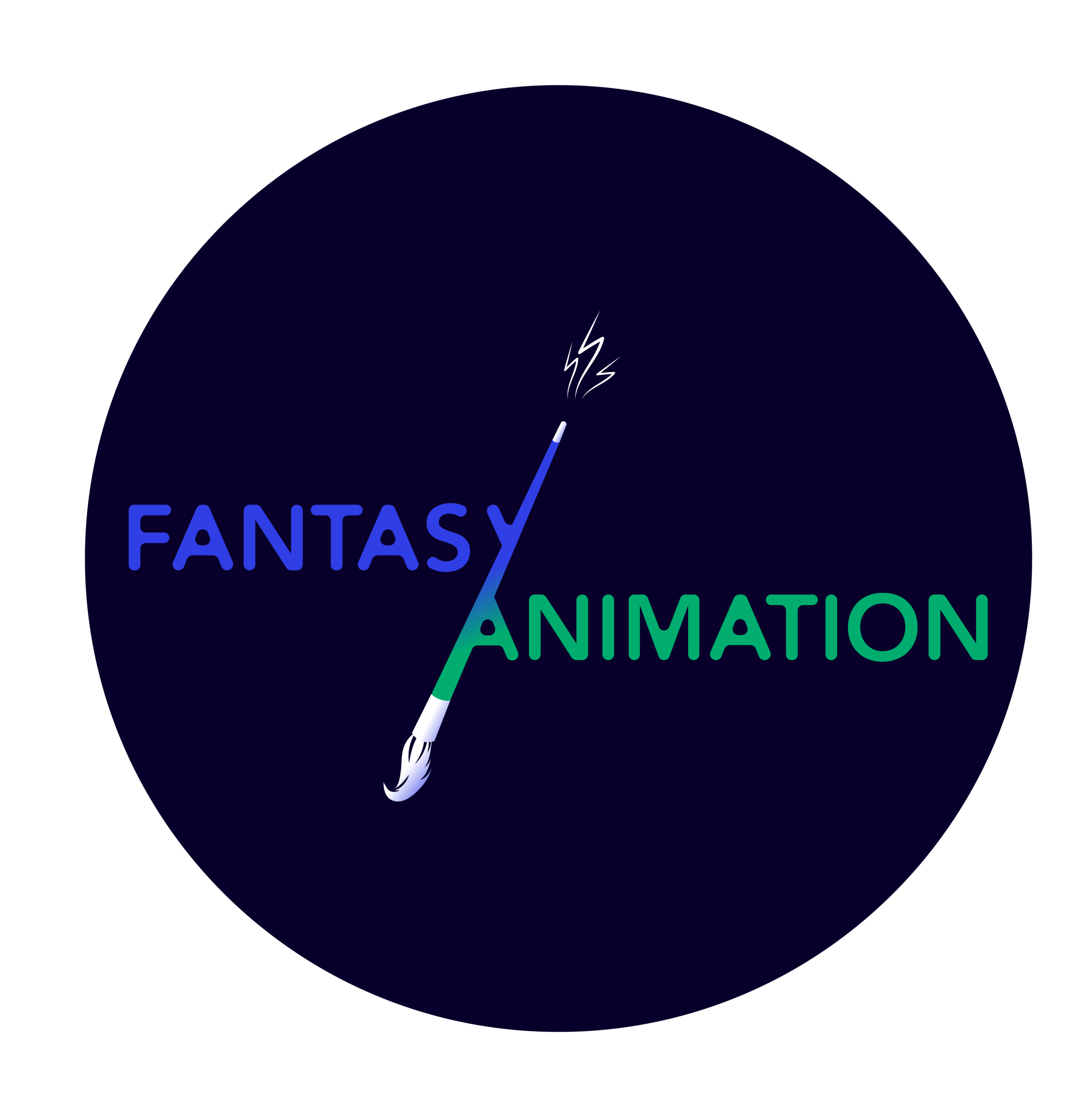As a media form, animation has the unique ability to render immaterial realities and unfamiliar experiences visually in a manner inaccessible to live-action cinema. In this way, animation can represent the unrepresentable, creating a rare opportunity for either the disruption of hegemonic discourses, such as through the visualisation of silenced perspectives, or a repackaged reiteration of them. Animation can provide a vehicle for graphic political criticism, augmenting the way things are represented through artistic means: such as by exaggerating certain characteristic features of a political class or actor through cartoon aesthetics. A prime example of this can be found within the Who is a Refugee? animation featured on the United Nations High Commissioner for Refugees (UNCHR) YouTube channel, which represents the journey of an unnamed family from an unspecified nation as they transition into refugee status.
Read MoreHazbin Hotel, a series created and directed by Vivienne Medrano, premiered in 2024. It follows the story of Charlie Morningstar, daughter of Lucifer Morningstar and Lilith, and her efforts to prevent sinners from facing the annual extermination which results in her establishing a hotel that rehabilitates them for entry into heaven. Although the series episodes explore a multitude of themes and topics, the episode that particularly resonated with me was “Episode 4: Masquerade,” which follows the character of Angel Dust as he tries to balance his job’s responsibilities while residing at the hotel.
Read MoreAlthough the action genre may seem like nothing more than pure spectacle, there are very specific methods employed by action films to elicit these reactions and assumptions from the audience. Redline (2009), directed by Takeshi Koike, is a Japanese anime film that uses these techniques expertly. Action-packed in every sense of the word, Redline follows the story of Sweet JP, a racer with dreams of winning the infamous Redline race. However, he must overcome the mafia, authoritarian governments, and other deadly racers to achieve his goals.
Read MoreIn 2019, MORE Productions was contemplating its first animated film project. Having worked on live-action features like The Ticket (2016) with Dan Stevens and Martin Scorsese’s Silence (2016), MORE’s co-producers Mark Rodgers and Mandi Hart knew the world of live-action filmmaking well. They also knew it was not the best creative choice for the story they were seeking to tell - the story of 21 men (twenty Coptic Egyptians, one Ghanaian) kidnapped, tortured and ultimately martyred by ISIS in an infamous video published on February 15, 2015.
Read MoreWreck-It Ralph (Rich Moore, 2012) follows the antagonist of a fictional arcade game known as Fix-It Felix. After escaping his 8-bit pixelated world and joining fellow outcast Vanellope von Schweetz in the brightly tinted world of Sugar Rush, the eponymous Ralph learns that their quest for redemption could lead to a massive shutdown of the arcade. Through its visual style and videogame narrative, Wreck-It Ralph felt as if it was calling me and my sector of young gamers, and the animation team at Disney managed to successfully bring in elements of popular gaming tropes and familiar characters to build the many worlds connecting through Game Central Station.
Read MoreBased on the music of the British pop band The Beatles, Yellow Submarine (George Dunning, 1968) is a film that perhaps best resembles the tradition of the jukebox musical. It tells the story of Pepperland, a music-loving utopia falling under siege by the music-hating Blue Meanies. By command of the Mayor, Captain Fred boards the titular yellow submarine to seek help. He discovers The Beatles and urges their help given their musical talents and their resemblance to Pepperland’s favourite musical group: Sgt. Pepper’s Lonely Hearts Club Band. The Beatles join Old Fred (Fig. 1) on a journey back to Pepperland, and rally Pepperland’s citizens to rebel against the Blue Meanies. Harnessing the groovy power of psychedelic pop, they sing their way to freedom.
Read MoreAs a student, a long time ago, at the University of Warwick, I took a seat in the library one day, the photocopiers nearby chugging and churning away, and opened the new issue (May-June 1992) of Film Comment. As a lifelong devotee (I was only 19) of Steven Spielberg’s movies you can perhaps imagine my astonishment when I turned a page to find an essay entitled “The Panning of Steven Spielberg (Part One),” written by Henry Sheehan. To this day, Sheehan’s piece remains a touchstone in writing about Spielberg’s filmmaking. Limited to the space of a magazine page, Sheehan’s eventual two-part essay made such sense, and it was the first time that I’d really read something about Spielberg’s films that looked so consistently at the film style being deployed across his body of work.
Read MoreIn this week’s blog, Fantasy/Animation sat down with Mikkel Mainz of SKJALD Animation studio, a full-pipeline creative house and animation studio located in Denmark, to discuss its experience working on successful web series and feature films, the interpretation of music through animated style, and SKJALD’s future animated projects.
Read More(OO) is an animated short film directed by Seoro Oh in 2017 that illustrates the unpleasant experiences that someone encounters when they catch a cold. The unnamed protagonist’s journey begins with a sneeze but escalates into a cold. He is shown struggling with breathing through his nostrils and, as a result, finds himself constantly blowing his nose into a tissue. Everyone, at some point in their lives, experiences the feeling of not being able to properly breathe through their nostrils, whether it is because of a cold, being sick in general, or allergies.
Read MoreTrue to the promise of its title, Spider-Man: Across the Spider-Verse (Joaquim Dos Santos, Kemp Powers and Justin K. Thompson, 2023) is an exhilarating and emotional journey that continues to blaze the narrative and visual trail started by its predecessor. Made by Sony Pictures Animation in association with Marvel, the film does not open with the previous film’s Spider-Man, Miles Morales (Shameik Moore) as one might expect. Instead, it shifts the focus to Gwen Stacy (Hailee Steinfeld), also known as Spider-Woman, as she finds herself embroiled in the multiversal machinations of the taciturn, pragmatic Spider-Man 2099, Miguel O’Hara (Oscar Isaac), and his spider society.
Read MoreNotable for its erotic tone and psychedelic imagery, Eiichi Yamamoto’s adult art film Belladonna of Sadness (1973) interrogates the depiction of sexual violence against its female protagonist. The film, set against the backdrop of feudal France, follows newlywed villager Jeanne after being raped by the town’s baron on her wedding night.
Read MoreNoel Brown provides an engaging and well-researched account of contemporary Hollywood feature animation, here defined as from the 1990s onwards. Noting the recent significance of animation to both the Hollywood studios, their parent conglomerates, and popular culture more broadly, he aims to outline the “form and poetics of the mainstream animated feature” (Brown 2020, 2), with chapters devoted to their narrative and thematic focus on family and friendship, aesthetic shifts, and changes around their representations of identity.
Read MoreDuring the 2020-21 academic year, I convened a module on writing that used the significance of representation in fictional worlds (a key element of both fantasy storytelling and animated media) to guide undergraduate students through the challenges of writing across disciplinary boundaries.
Read MoreThe well-rehearsed statement that animation is nothing more than a medium ‘for children’ that is ‘not taken seriously’ enough is troubling on two counts. Firstly, it is clearly an assumption that is wide of the mark, as anyone working in the fields of film, media, or animation studies will tell you.
Read MoreIn a world of globalised animation, anime’s influence is ever expanding, ranging from adult Netflix animations like Castlevania (Warren Ellis, 2017-) to a wide variety of western children’s TV shows from Teen Titans (Glen Murakami and Sam Register, 2003-2006) to She-Ra and the Princesses of Power (Noelle Stevenson, 2018-2020).
Read MoreIn Sylvain Chomet’s first animated feature film, The Triplets of Belleville (2003) there is a key scene in which the main event simply concerns the barking of a dog out of the window at a passing train. This scene, which is going to be explored here in this sequence analysis, connects the childhood of Champion, the film’s main character, to the present time (of the film’s narrative, which takes place around 1950s), when we meet him as a young cycling athlete training for Tour du France, accompanied by his ever present, loving and supportive grandmother Madame Souza.
Read MoreIn this article I will explore the conceptual position a director occupies in the world they create or represent as a method for clarifying a film’s status as either fiction or documentary. As an animated documentary practitioner I am particularly interested in finding a balance between the seemingly limitless fantastic potential of animation and the duty of a documentary filmmaker to create authentic and ethical representations of people and the world.
Read MoreReleased in 2018, Spider-Man: Into the Spider-Verse (Bob Persichetti, Peter Ramsey & Rodney Rothman, 2018) explored the visual storytelling possibilities of animation. A computer-animated superhero feature film that retells the story of Miles Morales, a boy bitten by a radio-active spider giving him similar powers to those of Spider-Man, Spider-Man: Into the Spider-Verse bucks many of the traditional techniques of animation, and the production team used novel techniques to depict motion, depth of field, and emotion. Particularly notable is the combination of comic book elements within an animated feature. How do these novel techniques, alongside the combination of comic book mythology and animated storytelling, impact viewers’ comprehension of and experience of the story?
Read More

















